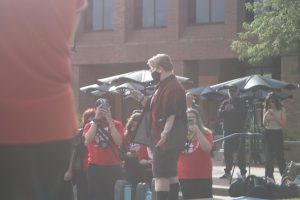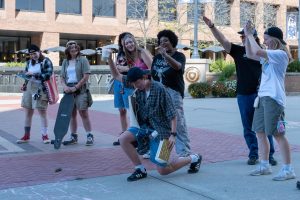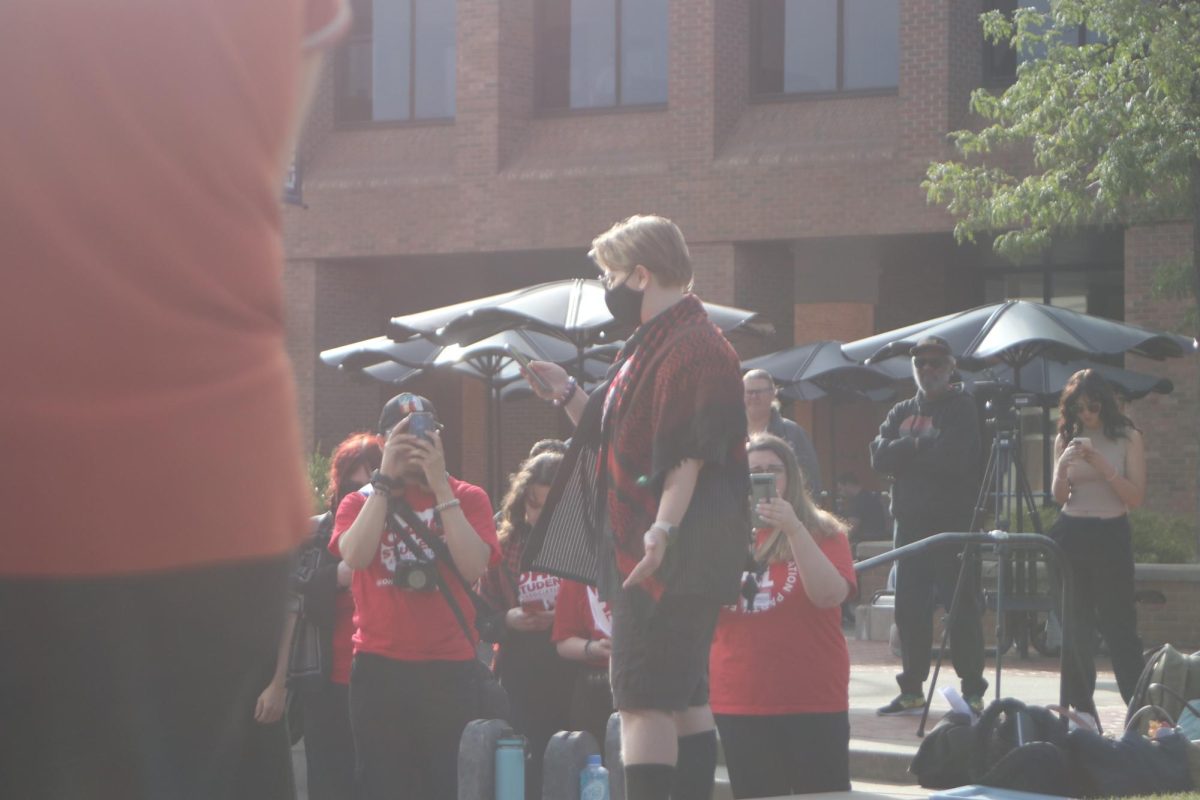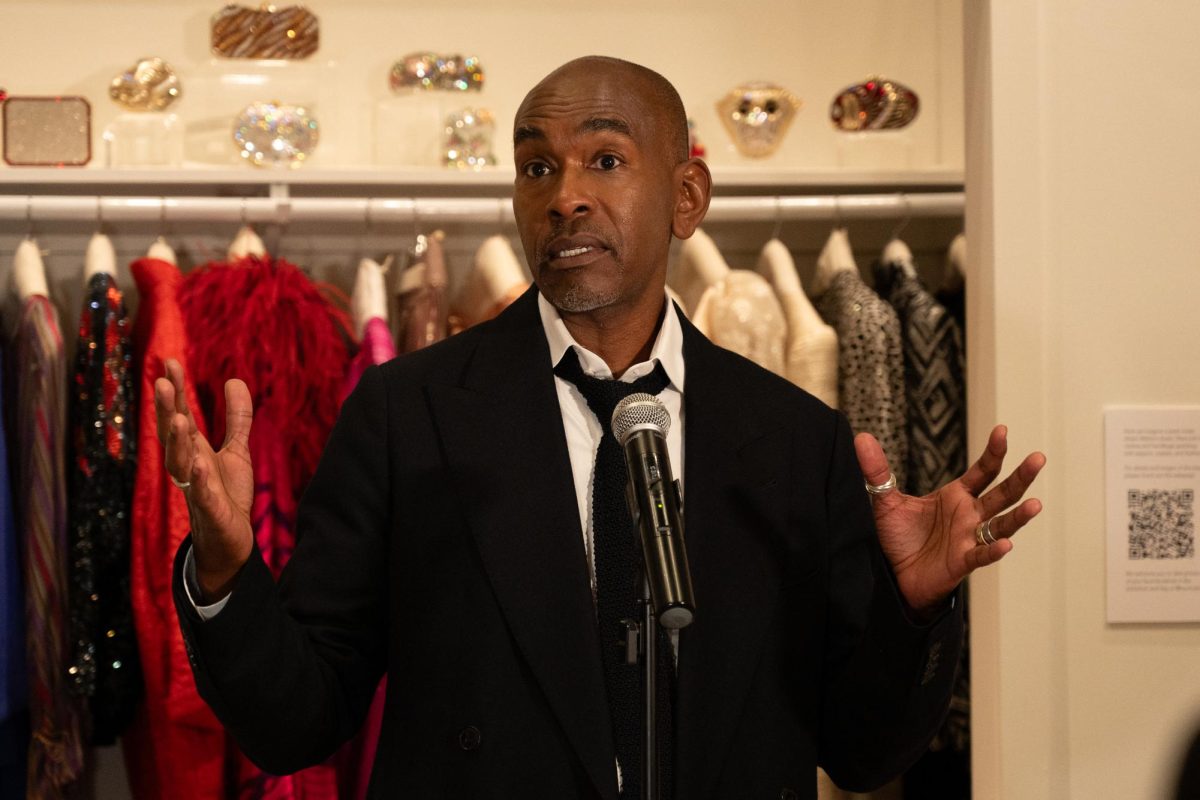When Chloe Ripoli applied to Kent State, they say they felt themselves drawn to the campus’s political history.
“As I was looking into the history of the university, I found out about the events of May 4, 1970, and Kent’s history of being a campus of change.” Ripoli, a sophomore political science and gender and sexuality studies major, says. “This was huge for me, because one of the biggest things I was looking forward to in college was actually being able to attend protests and make local and societal change.”
They say another big draw to the campus was the prospect of being able to study both political science and gender and sexuality studies.
“Ever since 2020, I’ve been very passionate about political education and LGBTQIA+ equality,” Ripoli says. “After college, I want to use what I’ve learned to work for an LGBTQIA+ nonprofit organization that provides aid to queer people across America and eventually enter into politics — most likely centering on local or state government, but my friends call me the future POTUS, so you never know.”
The university’s biggest appeal, though? The campus’s LGBTQ+ Living Learning Community and LGBTQ+ Center.
“After coming out in 2020 and continuing to explore my identity after that, I craved community with other queer folks,” Ripoli says. “I wasn’t just looking for a dorm — I was looking for a home. And that’s exactly what I found.”
Despite their excitement over the campus’s LGBTQ+ Center, they only found the time to visit the center once. This, Ripoli says, would be a choice they would go on to regret.
“I told myself, ‘I’ll go more next year.’ But now, there is no next year,” Ripoli says. “That chance has been stolen from me — from us. And that hurts.”
After the passing of Senate Bill 1, college campuses around Ohio were forced to make changes to their programs to comply with the bill. KSU was no exception, with the university announcing its decision to close the campus’s LGBTQ+ Center, Women’s Center and Multicultural Center in an email sent to all students, faculty and staff on June 2, 2025.
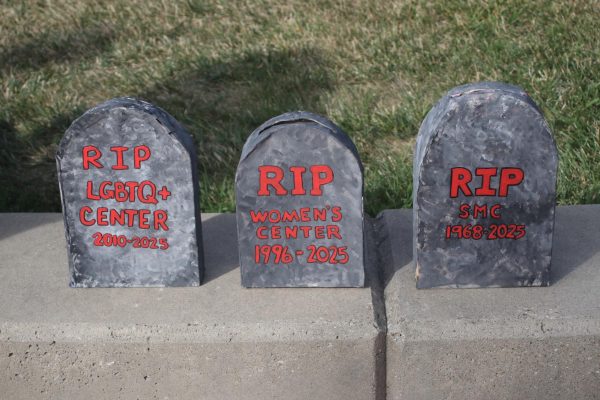
According to Ripoli, there’s been a noticeable change on campus since the passing of SB1.
“Before SB1 passed, the campus as a whole just felt friendlier,” Ripoli says. “People would voluntarily offer up their pronouns, whether or not they were a part of the LGBTQIA+ community. I knew that even if people didn’t like that I was queer, they most likely wouldn’t say anything, because why would they?”
However, after the passing of the bill, Ripoli says these gestures have all but vanished.
“Unless you are specifically in an LGBTQIA+ Studies or Gender & Sexuality Studies course, nobody shares their pronouns anymore,” Ripoli says. “Queer folks are scared that it will make them a target of harassment, and cishet folks no longer feel the need to normalize sharing pronouns to let transgender people feel safer in a room.”
Additionally, Ripoli has noticed how the bill has affected their professors and says that it’s had a negative impact on their education.
“Rather than focusing on teaching students what they need to know, they are tiptoeing around certain topics to avoid losing their jobs,” Ripoli says. “It just feels like everyone is walking on eggshells, but that isn’t sustainable. Something has to give.”
Ripoli also says they felt disappointed by KSU’s response to SB1 and that the university has been overly compliant in response to the bill.
“When we ask questions, we are simply pointed to the CARES Center and told to bring our concerns there,” they say. “There is only so much that one center can do in response to three others being closed, especially when those three centers were a lifeline for so many students.”
However, even with the closure of the identity centers, Ripoli hasn’t given up on finding community at KSU. In fact, they say the search has helped them turn their feelings of anger and disappointment into actions they hope will make a difference.
For that reason, on Aug. 27, 2025, Ripoli, alongside other members of the campus’s Ohio Student Association Branch, led KSU students across campus, where they marched in honor of the campus’s LGBTQ+ Center, Women’s Center and Multicultural Center.
“The Ohio Student Association is working to be a space where people of any identity can come together and take actions to support our diverse communities,” Ripoli says. “We refuse to let KSU’s legacy as a school of change die with the passage of SB1, and we will fight to ensure that our administration actively works to provide the same resources and opportunities they did with the identity centers.”
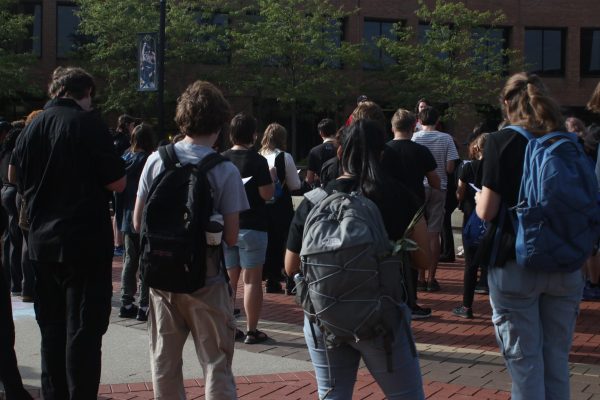
Ripoli was one of many speakers at OSA’s funeral march, and they gave a speech as the organization’s queer equity chair.
Ripoli didn’t just speak about their feelings of anger and disappointment — they emphasized their belief in the importance of community and the importance of building community as a means to resist.
As Ripoli put it on Aug. 27:
“So yes, tonight is a funeral. We mourn. We honor. We remember. But tonight is also a promise. A promise that even when they shut our doors, we will still build community. Even when they strip our funding, we will still create safety. Even when they try to erase us, we will still live in solidarity. They can take our centers, but they cannot take our power.
We are still here, we are still connected and we will keep fighting — for each other, for future students and for the spaces we all deserve.”
Rebekah Hiles is a web writer. Contact her at [email protected].

